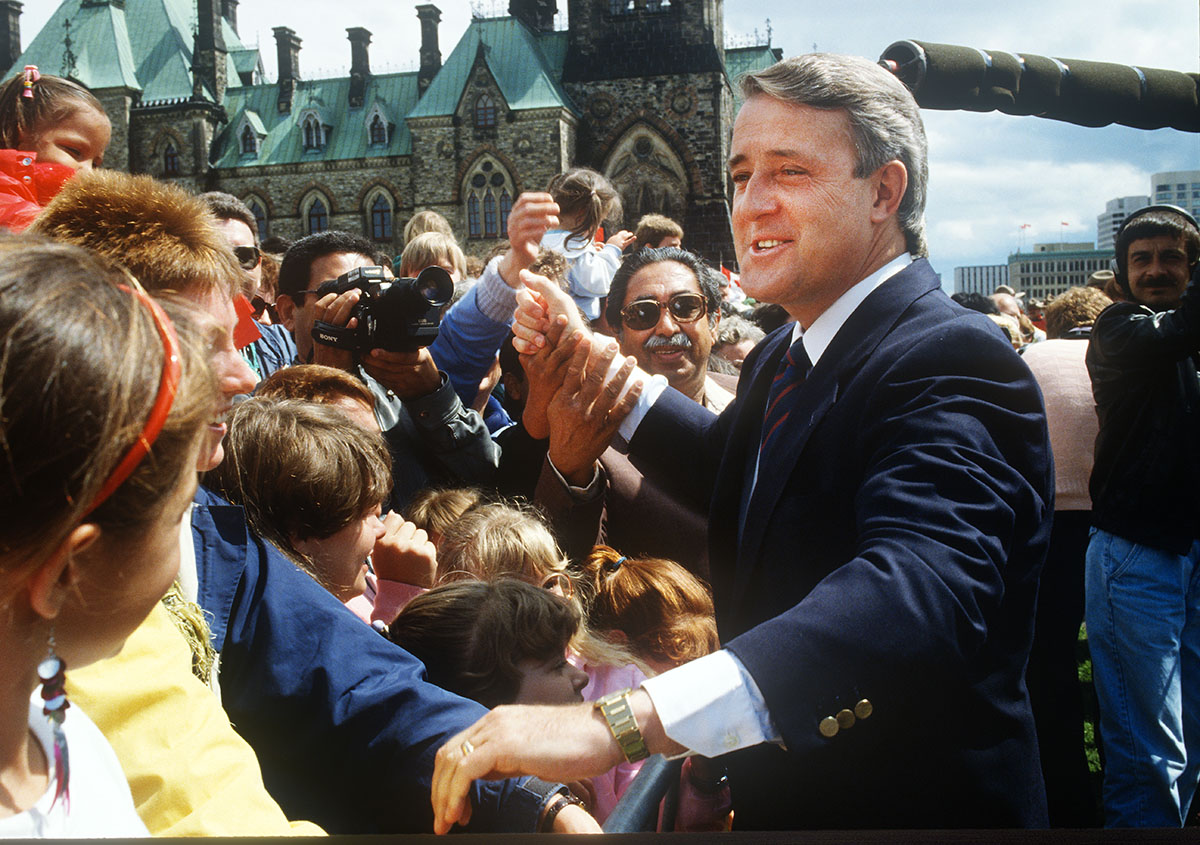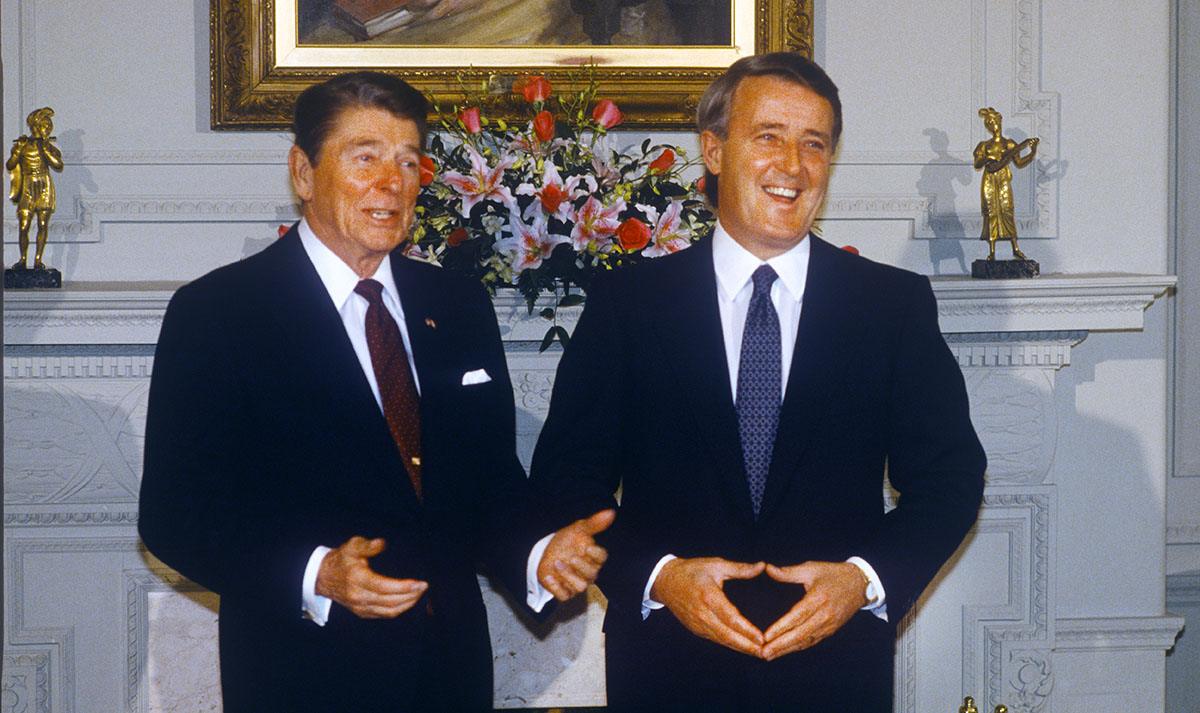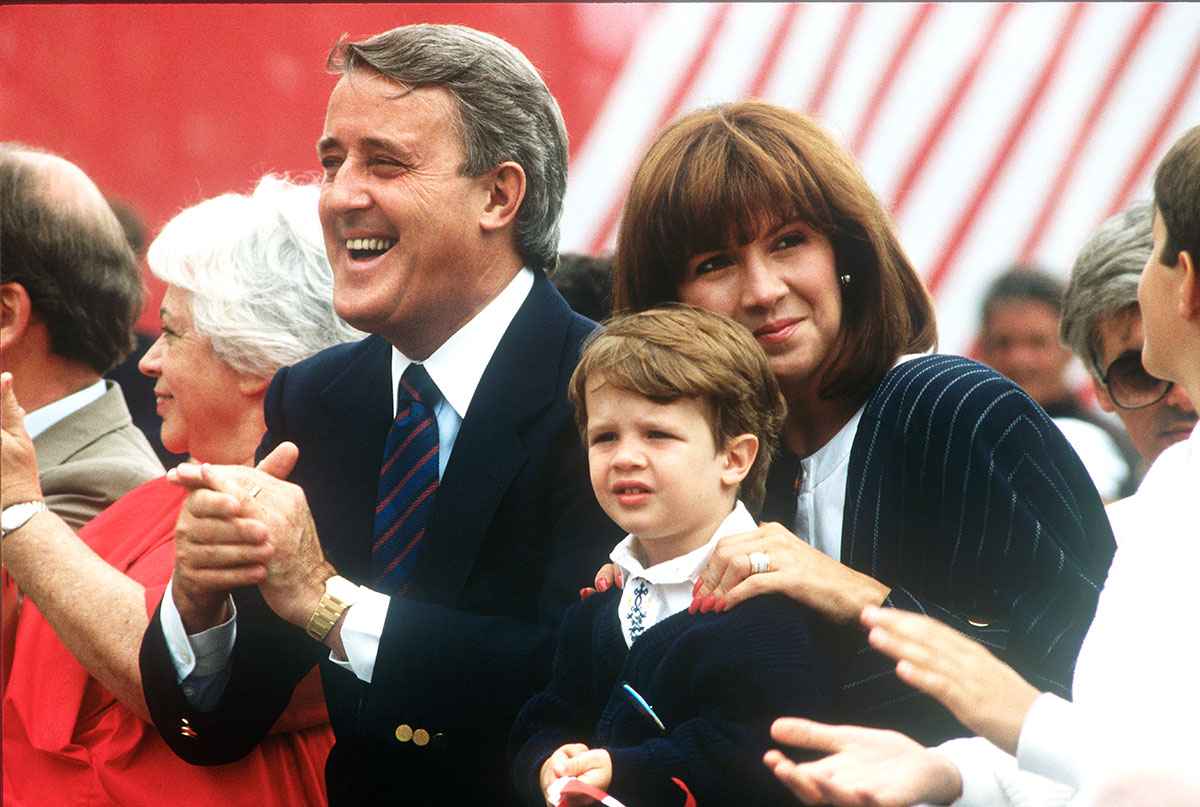
OTTAWA, Canada – Brian Mulroney, Canada’s 18th prime minister, died on Feb. 29, aged 84.
His daughter Caroline Mulroney, an Ontario MPP, announced his death on social media. “On behalf of my mother and our family, it is with great sadness we announce the passing of my father, The Right Honourable Brian Mulroney … He died peacefully, surrounded by family.”
His obituary in the Palm Beach Daily News noted that he recently fell at his home in the city, where he was a long time resident, and died of complications in a Florida hospital.
Martin Brian Mulroney was born in Baie-Comeau, Quebec, March 20, 1939. He was associated with Canada’s conservative movement since his university days, including undergraduate political science in 1959 at St. Francis Xavier University in Nova Scotia, and law at Université Laval in Quebec City in 1964.
In 1983 Mulroney won his first federal election, for the Progressive Conservatives in 1983, and served as prime minister from 1984 to 1993 when he resigned. In the federal election later that year, the Tories were massively defeated, winning just two of 295 seats in the House of Commons.
Mulroney was Canada’s last moderate Progressive Conservative prime minister. The party officially eliminated the six-decade old “Progressive” part of the name when it merged with the Canadian Alliance in 2003, to become the Conservative Party of Canada.
Controversial, consequential, divisive
Mulroney’s term was consequential, including his successes inking the Canada-U.S. Free Trade deal (and later NAFTA), the Acid Rain Treaty, sustained opposition to South African apartheid, the introduction of the Goods and Services Tax. But his failed efforts at constitutional reform left deep scars on the country, especially in Quebec.
He was a divisive leader, creating deep rifts between those who favour the free market economics that he championed, and social democrats. He was once accused by author Mel Hurtig of “selling off our country.” Joe Hartley, Macdonald-Laurier Institute. compared him favourably to U.S. President Ronald Reagan and British Prime Minister Margaret Thatcher as “unabashedly pro-freedom in terms of the markets … Mr. Mulroney ultimately triumphed with a message of free enterprise, competition and innovation.”
And he was, and remains, controversial, with his record tarnished by corruption allegations. His taking several hundred thousand dollars from Canadian-German arms lobbyist Karlheinz Schreiber led to a commission of inquiry by Justice Jeffrey Oliphant. In 2010 Oliphant concluded, “Mr. Mulroney’s failure to disclose those business and financial dealings was inappropriate. Simply put, Mr. Mulroney, in his business and financial dealings with Mr. Schreiber, failed to live up to the standard of conduct that he had himself adopted in the 1985 Ethics Code.”
But even in the early retrospection following his death, Mulroney’s portrait is neither starkly black nor pearly white. His passing was mourned by the left-wing Broadbent Institute, which noted that Mulroney and the late NDP leader Ed Broadbent-once ferocious opponents in Parliament-together established the International Centre for Human Rights and Democratic Development in 1988, to “encourage and support the universal values of human rights and the promotion of democratic institutions and practices around the world … Broadbent and Mulroney found common ground to work together on issues of human rights and democracy.”
Trudeau announced that plans are underway for a state funeral.

Reactions
“He never stopped working for Canadians, and he always sought to make this country an even better place to call home” – Prime Minister Justin Trudeau, citing Mulroney’s “role in building the modern, dynamic, and prosperous country we all know today.”
“Tough sometimes, obviously he was involved in conflicts as well as successes, but I think that he would have wanted to be remembered as a happy warrior, and I think he was a happy warrior” – Progressive Conservative prime minister (1979-1980) Joe Clark., whom Mulroney beat out to become PC leader in 1983.
Mulroney’s support for the release of Nelson Mandela, and imposing sanctions on South Africa’s apartheid regime, led to a free, democratic, non-sexist and non-racial South Africa” — South African President Cyril Ramaphosa. “He spoke out against apartheid, advocated the economic isolation of the regime and took a stand when many in the international community were wavering.”
“Mulroney was fearless and not afraid to stand up for causes he cared about, like advocating against racial apartheid in South Africa” – US President Joe Biden, who cited accomplishments by Mulroney and President Ronald Regan on the historic Acid Rain Treaty, U.S.-Canada Free Trade Agreement, and the North American Air Defense Command (NORAD) agreement between Canada and the U.S.
Mulroney, “a grand strategist of the 20th Century,” helped end the Cold War – Ian Brodie, Professor of Political Science, University of “Calgary, and Stephen Harper’s former chief of staff.
“He was achingly human — vain and blustering but funny and wise” – John Ivison, Journalist.
“Brian Mulroney did more harm than good” – Judy Rebick, President of the National Action Committee (NAC) on the Status of Women during Mulroney’s term. “We fought him on free trade, abortion, constitutional change, and Indigenous rights among other issues … Yes, Brian Mulroney fought apartheid. Yes. he helped to stop acid rain. But he also brought savage capitalism to Canada in the form of free trade with the US.”
Mulroney had a “transcendent talent for friendship” – Anthony Wilson-Smith, Journalist. “In the later years of his life, he managed the decidedly un-Irish trick of forsaking grudges as though elegantly disposing of excess baggage. that was striking because Mulroney spent much of his life doing everything – emotions, ambitions, achievements – on an oversized scale.”
“Mulroney has multiple images” – Jonathan Malloy, Professor of Political Science, Carleton University. “Among them are a harsh ideologue, a milquetoast pleaser, an obsession with polls, deep indifference to public opinion, a slick operator whose slickness was exposed continually, a statesman and possibly a crook.”
“Mulroney leaves a perplexing legacy” – Thomas Klassen, public policy professor, York University. “A charismatic politician who led his party to two majority governments. A prime minister who made major and lasting changes to Canada’s economy. A successful business leader before and after his years in politics. Yet, he was also a prime minister who failed to bring in constitutional reforms that seemed within his grasp and a leader who unleashed political turmoil in his home province that has had a lasting impact on the Canadian political landscape decades after he left office.”

Further reading:
